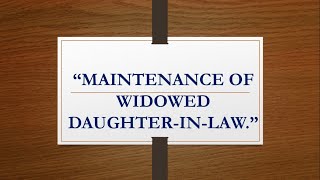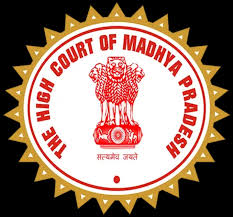Ryves and Gokul Prasad, JJ.@mdashThe facts out of which this appeal arises must be carefully noted. The mortgagor (defendant appellant No. 1) borrowed a sum of Rs. 99 under a mortgage of his zamindari property, dated the 14th of September, 1897. The rate of interest agreed upon was two per cent, per mensem. He paid nothing at all either towards principal or interest, so that in 1004 the debt had swelled to Rs. 450. The mortgagee then threatened to sue to recover this amount, but was persuaded by the mortgagor to give him time and renew the mortgage. Thereupon the mortgage now in suit was executed on the 3rd of August, 1904. The terms of this mortgage were most favourable to the mortgagor, for he was given 4� years to pay off the debt of Rs. 450, due under the former mortgage, by nine six-monthly instalments of Rs. 50, payable at the end of Pus and Jeth in each year, without interest. The same property was again mortgaged. It was agreed, however, that if default was made in the payment of the instalments, the mortgagee was at liberty to cancel the arrangement as to instalments and could sue for the whole amount and charge interest at 2� per cent, per mensem. Default was made in the very first instalment; it was paid too late. When the money was paid, the mortgagee placed part of it towards the interest that had begun to run, and the balance was credited in reduction of the principal. Later on, various sums were paid; the second item was Rs. 50, paid on the date on which the second instalment) was due. The mortgagee,'' however, apportioned it in true same way as he had done with the first payment, partly to pay off the interest which had accrued, and the balance towards principal. No more instalments were paid, but the mortgagor from time to time made irregular payments of varying sums, all of which were duly credited, and amounted in all to Rs. 390.
2. The mortgagee plaintiff, respondent now, sued to recover the unpaid debt plus interest as stipulated in the mortgage deed. The mortgagor was made defendant No. 1. His wife was joined as defendant No. 2, because her name appeared in the Khewat as owner of the bulk of the mortgaged property. The other defendants were subsequent purchasers or subsequent mortgagees of portions of the mortgaged property. We are not here concerned with them.
3. The defence to the suit of the mortgagor was that he had paid eight instalments, i.e. Rs. 400; that the mortgagee''s allegation that he had paid only Rs. 390 was wrong, and that the mortgagee having accepted the instalments, he was not entitled to charge interest, and could only recover Rs. 50, due for the last instatement.
4. His wife''s defence was that the property mortgaged did not belong to the mortgagor at the date of the mortgage, because, some six months previously, he had transferred it to her by a registered deed in lieu of her dower debt of Rs. 25,000, which was unpaid, The trial court decreed the suit, but reduced the rate of interest to that of the original bond of 1897, as the plaintiff agreed to accept this rate. Both the mortgagor and his wife appealed, and their appeals were dismissed by the District Judge.
5. Both come here in second appeal.
6. The wife''s appeal may be disposed of at once. Both courts have found that the alleged transfer in her favour in lieu of dower was fraudulent, and as that finding was based on legal evidence it concludes her appeal.
7. On behalf of the mortgagor two grounds have been pressed.
(1) Because when the mortgagee did not exercise his right to enforce the penalty but continually accepted irregular payments, it amounted to a waiver in law.
(2) Because a personal decree more than six years after the accrual of the right is against law, and such claim was barred by time.
8. We can dispose of the second ground at once; it has been found that the last payment was made on the 8th of July, 1912, and the suit was instituted within 6 years of that date; the personal liability, therefore, had been kept alive, and the personal decree was not barred.
9. The first ground of appeal is based on the ruling of this Court in Sakhawat Husain v. Gajadhar Prasad ILR (1906) All. 622. But, before we can see whether that ruling is applicable, we must see what were the facts found, The first instalment was due on the 4th of February, 1905. It was not paid till some days afterwards. The next instalment of Ks. 50 was paid on the 3rd of July, 1905, which was the due date of the second instalment; no other instalment was paid on the stipulated dates, but various sums were paid from time to time, the last being a sum of Rs. 102, paid about the 8th of July, 1912; and it has been found that Rs. 390 only, and not Rs. 400, had been paid by the mortgagors. As we have shown above, default was made at the first) instalment, and the mortgagee at once began to charge interest. The second instalment was not received by him as an instalment towards the principal debt. The mortgagee admittedly gave receipts for all payments made; the mortgagor has produced only four of these, and they all show that the receipts were not given for instalments as such, or for any particular instalment, but merely as payments towards the principal and interest due under the bond. Apparently, as the District Judge finds, the mortgagor did not ask the mortgagee to accept the payments as instalments and he certainly knew from the receipts that the mortgagee had not so treated them, These being the facts, the ruling relied upon does not apply.
10. Then it was argued that the mortgagee must be taken to have accepted the second instalment of Rs. 50, paid on its due date, as an instalment, and that that fact at once and for ever prevented him from enforcing his right to interest, because in law it amounted to a waiver. But as we have pointed out it is found that he did not so accept it; but, even if he did, the argument is unsound. See Ram Dhani Sahu v. Lalit Singh (1908) 5 A.L.J. 609. These eight instalments, though irregularly made, had been accepted, and default was made in the two last instalments. The plaintiff claimed to recover the balance due on the bond with interest as stipulated in case of default. The lower courts held that the plaintiff had waived the defaults made by the mortgagor, and was entitled only for the balance due on the last two instalments. This Court held that as the bond gave the mortgagee the right to recover the whole of the balance due upon failure to pay any instalment, the plaintiff was entitled upon default being made in the payment of the 9th instalment to sue for whatever amount remained due to him under the bond. In that particular case the plaintiff, in appeal, did not claim interest, except from the date of the decree of the first court, and that this Court allowed him. In that case too, the ruling of Sakhawat Hussain v. Gajadhar Prasad ILR (1906) All. 622 was relied upon, but it was distinguished in the following terms:
That case is clearly distinguishable from the present. In that case, as in the present, soma instalments, though paid irregularly, had been received, but the suit was brought after all the instalments had become due, and the only question was whether the plaintiff was entitled to interest in accordance with the terms of the bond, such interest being payable in case of default being made in the payment of any instalment. It was held that the creditor having received the amounts of the instalments which had been irregularly paid was not entitled to interest on those amounts." We note that Stanley, C.J., was a party to both decisions.
11. Following this ruling, even if the second instalment be treated as an instalment paid and received as such, it was still open to the mortgage if default was made in future, as it was, to sue for the balance of his debt with interest. A note is made to sue for the balance of his debt with interest. A note is made in Rustomji''s Law of Limitation, 2nd Edition, at page 297, which seems in point and appears to us to be good law. He says: "The law now appears to be that such payment and acceptance is sufficient evidence of waiver, but the payment must be on account of the specific instalment in arrear and not a mere payment in reduction of the whole debt (i.e. a mere payment on account generally will not suffice)." This note is stated to be based on an unreported ruling of a Divisional Bench of this Court, but the reference given is wrong and we cannot trace it. In the case before us it has been held that the payments made were made generally in reduction of the debt.
12. The result is, the appeal fails and is dismissed with costs.

